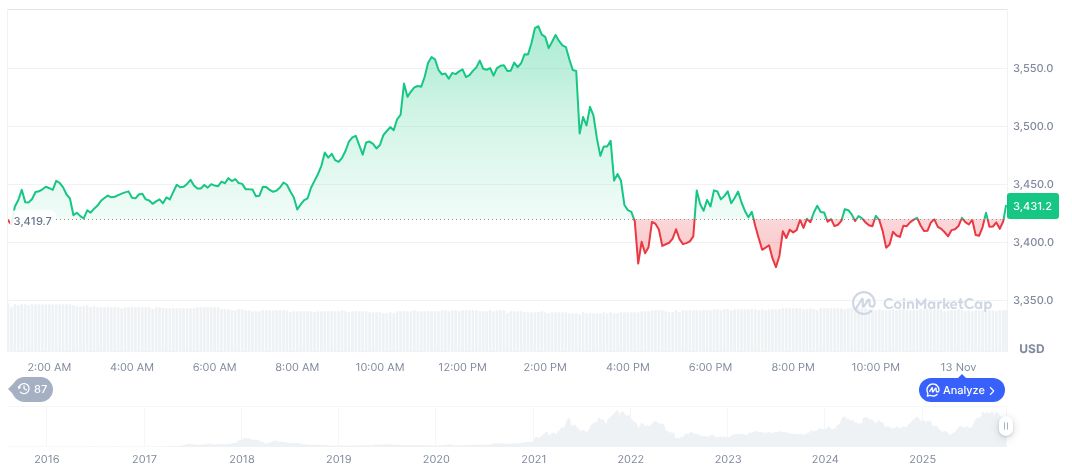- The FDIC is creating guidelines for tokenized deposit insurance, as announced by Acting Chairman Travis Hill.
- Guidelines aim to stabilize digital deposits on blockchain.
- Potential impacts on U.S. stablecoin market and financial institutions.
On November 14th, FDIC’s Acting Chairman Travis Hill announced the development of guidelines for tokenized deposit insurance to assist U.S. financial institutions in expanding digital asset services.
These guidelines aim to ensure that blockchain-based deposits retain their legal status, potentially impacting stablecoin markets and enhancing consumer protection amid rising concerns over unsound fintech practices.
FDIC Clarifies Insurance for Blockchain Deposits
The FDIC, under the leadership of Acting Chairman Travis Hill, unveiled plans to establish guidelines for tokenized deposit insurance. Hill emphasized that deposits moved onto the distributed ledger technology should continue being treated as federally insured. This aligns with recent speeches and policies aimed at enabling banks to comfortably transition into the digital asset sector.
These changes position the FDIC to clarify the legal status of blockchain-based deposits, likely stabilizing U.S. financial institutions’ digital offerings. Many banks are keen to enter the market, but await regulatory certainty. The guidelines could foster a more secure blockchain banking environment.
Initial reactions highlight a mix of enthusiasm and caution. Key figures, including industry experts and policymakers, broadly support the clarity these guidelines aim to provide. Travis Hill reassures, “Deposits are deposits, regardless of the technology,” reflecting confidence in regulated digital finance.
Regulation Boosts Blockchain and Stablecoin Adoption
Did you know? Blockchains’ move towards regulated deposits mirrors similar transitions seen in the early 2000s when online banking gained regulatory clarity, quickly enhancing consumer trust.
As of November 13, 2025, Ethereum (ETH) prices were $3,231.48 with a market cap of 390.03 billion. ETH showed a 5.21% decline within 24 hours, falling by 27.51% over 90 days, alongside a significant 43.33% increase in 24-hour trading volume, according to CoinMarketCap.
Coincu’s research team suggests that regulatory advancements like the FDIC’s could lead to increased blockchain adoption in traditional banking sectors. This shift may influence the stablecoin market significantly, reinforcing financial product diversification and technology adoption.
| DISCLAIMER: The information on this website is provided as general market commentary and does not constitute investment advice. We encourage you to do your own research before investing. |
Source: https://coincu.com/news/fdic-tokenized-deposit-insurance-guidelines/
